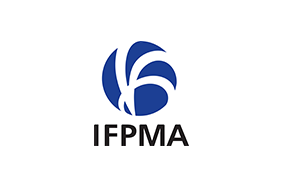R&D-based Biopharmaceutical Industry Welcomes UN Declaration on TB
Partnerships are key to foster innovation and access
Published 09-27-18
Submitted by International Federation of Pharmaceutical Manufacturers & Associations

Yesterday, at the first-ever United Nations (UN) High-Level Meeting on Tuberculosis (TB), world health leaders agreed on a new, collaborative, focused, and forward-looking declaration that sets priorities for the global fight against TB. Recognizing the complexity of the disease and the barriers to progress, the declaration aims to improve access to treatment and care for the 10 million people who fall ill with TB every year.
The R&D-based biopharmaceutical industry welcomes the political declaration and reaffirms its commitment to the global fight against TB. To deliver on our common goal, industry stands ready to partner on the three pillars of the WHO End TB Strategy including integrated, patient-centred care and prevention; bold policies and supportive systems; and, in particular, intensified research and innovation.
In addition to having delivered the first two new TB drugs in over 40 years, industry is currently engaged in over 82 R&D projects for TB medicines, vaccines, and diagnostics, including 11 promising products in late stages of development and seven in phase III clinical trials. Companies are partnering with over 40 collaborators (universities, research institutes, product development partnerships (PDPs), etc.) to develop innovative medicines and vaccines for TB and multidrug-resistant TB (MDR-TB). Continued innovation is particularly important given the growing levels of drug resistance.
“Ending TB as a global public health threat by 2030 requires focus, leadership, and above all a meaningful partnership that fosters innovation and access. The UN Declaration on TB is a milestone in the fight against TB. Its goals are geographically and epidemiologically focused, demonstrate political and community leadership, encourage action-oriented partnerships and commit to the robust use of data-based metrics – all of this in full engagement with TB affected communities. We welcome such political commitment,” says Thomas Cueni, IFPMA Director General.
More resources:
IFPMA statement at the High Level Meeting of the General Assembly on ending Tuberculosis
The full recording of the session:
- General Assembly: High-level meeting on the fight against tuberculosis Opening and plenary
- General Assembly: High-level meeting on the fight against tuberculosis Multi-stakeholder Panel 1
- General Assembly: High-level meeting on the fight against tuberculosis Multi-stakeholder Panel 2
ABOUT IFPMA
IFPMA represents research-based pharmaceutical companies and associations across the globe. The research-based pharmaceutical industry's 2 million employees research, develop and provide medicines and vaccines that improve the life of patients worldwide. Based in Geneva, IFPMA has official relations with the United Nations and contributes industry expertise to help the global health community find solutions that improve global health.

International Federation of Pharmaceutical Manufacturers & Associations
International Federation of Pharmaceutical Manufacturers & Associations
The International Federation of Pharmaceutical Manufacturers & Associations (IFPMA) represents research-based pharmaceutical companies and associations across the globe. Based in Geneva, IFPMA has official relations with the United Nations and contributes industry expertise to help the global health community find solutions that improve global health.
Research-based pharmaceutical companies make a unique contribution to global health as innovators of life-saving and life-changing medicines and vaccines, which improved millions of lives around the world. Both IFPMA and its companies are involved in hundreds of partnerships, including the Access Accelerated initiative, a partnership of over 20 biopharmaceutical companies developing innovative and sustainable solutions to improve access to non-communicable disease (NCDs) treatment and care in low- and middle income countries. Access Accelerated also partners with the World Bank and the Union of International Cancer Control to help address the full spectrum of access barriers to NCD medicines. These partnerships involve the discovery of treatments that threaten health security or unduly put a burden on low-income countries, as well as support Universal Health Coverage (UHC) by expanding access to medicines and vaccines and strengthening health systems and in doing so, contribute to the Sustainable Development Goals (SDG 3 and SDG 17).
IFPMA hosts the Secretariat of the AMR Industry Alliance, a coalition of over 100 biotechnology, diagnostic, generics and research-based biopharmaceutical companies and trade associations that was formed to drive and measure industry progress to curb antimicrobial resistance. IFPMA also played a key role in establishing the AMR Action Fund, a ground-breaking initiative involving over 20 biopharmaceutical companies, that aims to bring 2-4 new antibiotics to patients by 2030.
Other initiatives supported by IFPMA include: The African Global Health Leaders Fellowship, the Africa Young Innovators for Health Award, and Fight the Fakes.
More from International Federation of Pharmaceutical Manufacturers & Associations

